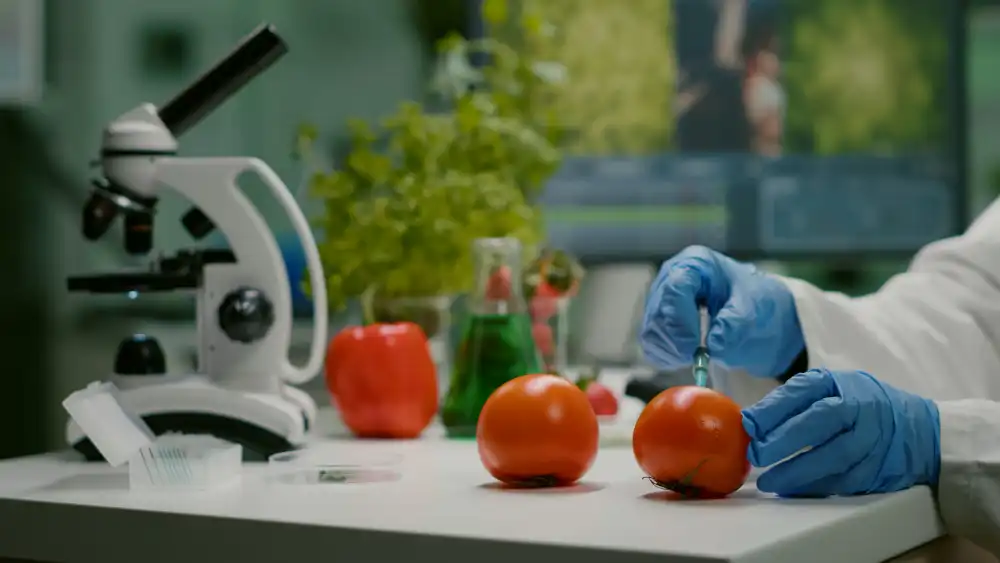
Foodborne illness is a major public health concern, with millions of people affected every year around the world. Millions of people become sick from contaminated food annually. The role of food detectives in identifying and preventing foodborne illness is essential in keeping people safe from potentially deadly diseases.
What are Food Detectives?
Food detectives are scientists, investigators, and public health officials who are responsible for identifying the causes of foodborne illness outbreaks. Their job is to investigate outbreaks of foodborne illness, identify the source of contamination, and prevent further spread of the disease.
Food detectives work for government agencies as well as for private companies and research institutions. They use a variety of techniques, including laboratory testing, epidemiological investigations, and field inspections, to determine the cause of foodborne illness outbreaks.
How Food Detectives Identify the Causes of Foodborne Illness
Food detectives use a variety of tools and techniques to identify the causes of foodborne illness. One of the most important tools they use is epidemiological investigation, which involves interviewing people who have become sick with a foodborne illness to determine what they ate and where they ate it.
By analyzing this information, food detectives can often identify the source of contamination. They may also collect samples of food, water, and other substances for laboratory testing. Laboratory testing can identify the specific pathogen responsible for the illness and help pinpoint the source of contamination.
In addition to epidemiological investigations and laboratory testing, food detectives may conduct field inspections of farms, processing facilities, and other food production sites to identify potential sources of contamination. They may also review food safety records and other documentation to identify areas where improvements can be made to prevent future outbreaks.
Preventing Future Outbreaks
Once food detectives have identified the source of contamination, they work to prevent future outbreaks. This may involve working with food producers and processors to implement new food safety measures.
Food detectives also work to educate the public about foodborne illness and how to prevent it. This may include providing information about safe food handling practices, such as washing hands and utensils before and after handling food, and cooking meat to the appropriate temperature to kill harmful bacteria.
Challenges and Future Directions
Despite the important role that food detectives play in identifying and preventing foodborne illness, their work is not without challenges. One major challenge is the rapid pace of globalization, which has led to a complex and interconnected food supply chain. This can make it difficult to identify the source of contamination in a timely manner.
Another challenge is the emergence of new pathogens and the evolution of existing pathogens, which can make it difficult to keep up with the latest threats. Food detectives must be constantly vigilant and up-to-date with the latest developments in food safety science and technology.
Looking to the future, food detectives will need to continue to adapt to new challenges and emerging threats. This may include the development of new technologies for identifying pathogens and tracing the origin of contaminated food, as well as new approaches to food safety education and outreach.
Conclusion
The role of food detectives in identifying and preventing foodborne illness is critical to public health. By using a variety of tools and techniques, food detectives are able to identify the sources of contamination and prevent further spread of the disease. As the food supply chain continues to become more complex and new threats emerge, food detectives will need to continue to adapt and innovate to keep people safe from foodborne illness.
If you’re interested in taking the food detective test, the Mi Vida Inner Health Clinic in Stockport, Manchester can help. We offer a simple, affordable way to complete the test. In addition to providing you with all the tools you need to take the test, we will also send your blood sample to the lab on your behalf. Call 0161 243 5969 to schedule an appointment, or email info@mividainnerhealt-ry0jysbts.live-website.com.
Frequently Asked Questions
Here are some of the most commonly asked questions about food detectives:
Q: What is a food detective?
A: A food detective is a scientist, investigator, or public health official who is responsible for investigating outbreaks of foodborne illness, identifying the source of contamination, and preventing further spread of the disease.
Q: What do food detectives do?
A: Food detectives use a variety of techniques, including laboratory testing, epidemiological investigations, and field inspections, to determine the cause of foodborne illness outbreaks. They may also work to prevent future outbreaks by implementing new food safety measures and educating the public about safe food handling practices.
Q: How do food detectives investigate foodborne illness outbreaks?
A: Food detectives investigate foodborne illness outbreaks by interviewing people who have become sick with a foodborne illness, collecting samples of food, water, and other substances for laboratory testing, and conducting field inspections of farms, processing facilities, and other food production sites.
Q: What are some of the challenges that food detectives face?
A: Food detectives face a number of challenges, including the rapid pace of globalization, the emergence of new pathogens and the evolution of existing pathogens, and the need to constantly adapt to new developments in food safety science and technology.
Q: How can I help prevent foodborne illness?
A: There are several things you can do to help prevent foodborne illness, including washing your hands and utensils before and after handling food, cooking meat to the appropriate temperature to kill harmful bacteria, and practicing good food safety habits when eating out at restaurants.





